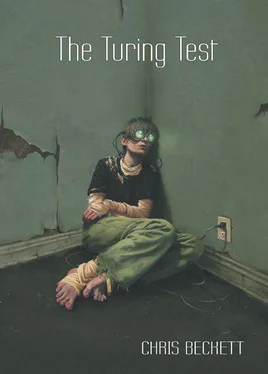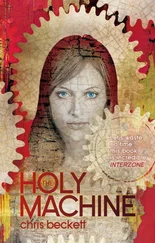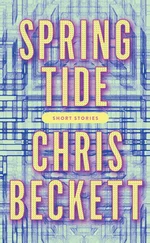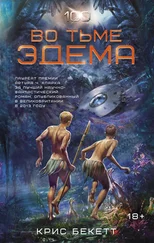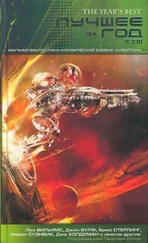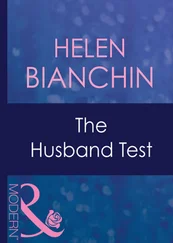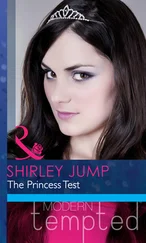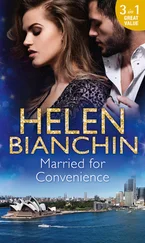I shrugged. “Actually I’m not so sure the Emperor did really benefit from Half-and-Half’s service. For one thing our soldiers all loved Half-and-Half and blamed the Emperor for his death. The Emperor lost their wholehearted loyalty and that was the beginning of the end of his power.”
It was cold up there. Above the rocky bowl of Half-and-Half’s Doom, the sky was heavy and grey. Zolinda suddenly put her arm in mine. Why did this give me so little pleasure?
“As for the war,” I said, “we won it, I suppose, but the Antinomians have been winning the peace ever since. Now that they are inside of the Empire, they’re taking over. We even have an Antinomian in charge of the Imperial Bank!”
I turned to go, pulling free of her as I did so. “And of course the Philinomians breed like rabbits,” I said, as we began to climb the rocky slope. “There isn’t a street in the Empire where their pale little children aren’t running about and shouting to one another in that outlandish Inglic tongue.”
“But none of that is anything to do with Half-and-Half!” Zolinda protested.
“You don’t think so?”
I paused to look back at the lake, surrounded by its rim of bare smooth rock.
So much for the Emperor, so much for the Empire, but what had become of me?
Well, I ate well now, I drank well, I made love as often as I could. And I was no longer thin, no longer haunted by the Eninometic ghosts of duty and sacrifice, no longer at war with my ordinary human needs.
Yet there were still times when I missed my old life in the Pristine Guard. Those austerities were once a part of me, after all. They gave me a direction, they provided me with certainties to live by.
And whatever I did, I would never recover those old certainties again.
* * *
There was a splash. Ripples spread outward from the central point of the lake.
It couldn’t have been a fish. Nothing lived in that perfectly transparent water. Someone must have thrown a stone.
Yet there was no one by the water’s edge, no one at all to be seen but a small dark-haired figure far off at the very top of the opposite rim.
And surely no one could have lobbed a stone from that far. It would have been an astonishing feat of strength.
The concentric waves spread over the glass-like surface until no part of the lake was untouched by the impact of that single stone. But as they spread they became smaller, and soon the lake was blank and smooth once again.
The dark-haired figure seemed to be watching us. Whoever it was, he waved. I could almost imagine I saw a small, teasing smile.
“This is Dirk Johns, our leading novelist,” said the poet’s mother, “and this is Lucille, who makes wonderful little landscapes out of clay…”
“Oh, just decorative,” protested the novelist’s tiny, bird-like wife, “purely decorative and nothing more.”
“And this is Angelica Meadows, the painter. You perhaps caught her recent exhibition in the Metropolis, Mr Clancy? I believe it received very good notices.”
“I believe I did hear something…” I lied, shaking hands with a very attractive young woman with lively, merry eyes. “I’m afraid I spend so little time in the Metropolis these days.”
“And this,” went on the poet’s mother, “is the composer, Ulrika Bennett. We expect great things of her.”
No, I thought, looking into Ulrika Bennett’s cavernous eyes, great music will never come from you. You are too intense. You lack the necessary playfulness.
And then there was Ulrika’s husband, ‘the ceramicist’, and then an angry little dramatist, and then a man who uncannily resembled a tortoise, complete with wrinkled neck, bald head and tiny pursed little mouth.
“Well,” I said, “I’m honoured.”
The tortoise was, it seemed, was ‘our foremost conductor and the director of our national conservatory.’
“The honour is ours, Mr Clancy” he said. “We have all read your extraordinary books, even out here.”
* * *
“William!” called the poet’s mother, “let us lead the way to dinner!”
The poet turned from a conversation with the painter Angelica. He had wonderfully innocent blue eyes, which had the odd quality that, while they seemed terribly naked and vulnerable, they were simultaneously completely opaque.
“Yes, of course, mother.”
He pushed her wheelchair through into the panelled dining room and the guests took their seats. I was given the head of the table. William sat at the opposite end, his mother by his side. Servants brought in the soup.
“William and I are trying hard,” announced the poet’s mother to the whole company, “to persuade Mr Clancy that there is more to our little colony than cattle ranches.”
“Indeed,” I said soothingly, “there is clearly also a thriving cultural life which I would very much like to hear more about.”
Well, they needed no second bidding. Remarkable things were being achieved under the circumstances, I was told, for the arts were struggling by with an appalling lack of support. Apart from the poet’s mother, Lady Henry, who was of course wonderful , there was not a single serious patron of the fine arts to be found in the whole of Flain. Everyone present did their heroic best, of course, but not one of them had achieved the recognition that their talents deserved…
And so on. I had heard it many times before, in many more provincial outposts than I cared to remember. I made my usual sympathetic noises.
It was as the dessert was being served that I became aware of the poet’s blue eyes upon me.
“Tell me honestly, Mr Clancy,” he asked – and at once his mother was listening intently, as if she feared he would need rescuing from himself – “Had you heard of even one of us here in this room, before you knew you were coming to Flain?”
I hadn’t, honestly, and from what little I had seen of their outmoded and derivative efforts, it was not surprising. (Let us face it, even in the Metropolis, for every hundred who fancy themselves as artists, there is only one who has anything interesting to say. It is just that in the Metropolis, even one per cent is still a good many gifted and interesting people.)
But before I could frame a suitably tactful reply, William’s mother had intervened.
“Really, William, how rude!”
“Rude?” His face was innocence itself. “Was that rude? I do apologise. Then let me ask you another question instead, Mr Clancy. What in particular were you hoping to see on your visit here? Please don’t feel you have to mention our artistic efforts.”
“Well I’m interested in every aspect of course,” I replied. “But I don’t deny that I’d like to learn more about the fire horses.”
There was a noticeable drop of temperature in the room and everyone’s eyes turned to Lady Henry, watching for her reaction.
“Fire horses,” sighed the novelist, Johns. “Of course. The first thing every Metropolitan wants to see. Yet surely you must have them in zoos there?”
I shrugged.
“Of course, but then we have everything in the Metropolis, everything remotely interesting that has ever existed anywhere. I travel to see things in context. And fire horses are Flain to the outside world, the thing which makes Flain unique. It was wonderful when I first disembarked here to see boys with their young fire horses playing in the streets.”
“How I wish the brutes had been wiped out by the first colonists,” said the poet’s mother. “Your curiosity is perfectly understandable, Mr Clancy, but this country will not progress until we are known for something other than one particularly ugly and ferocious animal.”
Читать дальше
